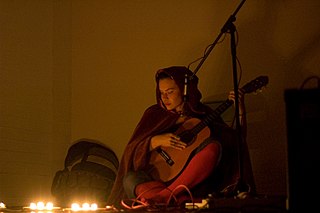A Quote by Molly Ringwald
I think when people hear about a celebrity writing a book of any kind, the assumption is that it was dictated to a ghostwriter.
Related Quotes
I absolutely think that women told that writing about themselves is somehow not worthy enough for a public audience all the time. I hear it so often from my students and friends. As if it doesn't take rigorous craft, and intellectual acuity to write a slammin' book of any kind. But perhaps, especially, about the body.
I've always been curious about people's psychedelic experiences, and I kind of had this assumption that I was going to have some kind of crazy mindblowing psychedelia thing happening, but actually, it was very quiet, and I didn't have any hallucinations at all. Nothing changed, except that suddenly I could hear the voice of my conscience, which I didn't ever think of as being a real voice. And ever since having that experience, I've had that voice in my head and followed it occasionally.
I give celebrity my undivided indifference. Now that it's here, there's absolutely nothing wrong with it. And people who complain about celebrity and any kind of privilege are, all of them, whinging morons, and they should keep their first-world problems to themselves. I feel very strongly about that.
What I've learned from my gurus is that when you hear music, you hear a person, or you hear people, and you hear everything about them in those moments. They reveal themselves in ways that cannot be revealed any other way, and it contains historical truths because of that. To me, that is the most important thing. It shouldn't be a footnote, or the last chapter. It should be the complete thesis about a book on listening.
You have to find a way of shutting the future out and focusing on the writing. One of the problems I'll have with writing my second book is getting back into a situation where I think about the words on the page rather than the publishing industry, or success, or any kind of readership I may now have. I'll have to do what writers do, which is focus on the story and nothing else.
I started playing classical music, and I still do. I think music ultimately is kind of on a theoretical level, is about collecting and learning as much vocabulary as possible. It's kind of like writing. It's kind of like writing because the more you read, the more you hear people describe things. The more you soak in, as far as vocabulary, the more access you have in order to express yourself accurately and vividly.
The people who review my books, generally, are kind of youngish culture writers who aspire to write books. When someone writes a book review, they obviously already self-identify as a writer. I mean, they are. They're writers, they're critics, and they're writing about a book about a writer who's a critic. So I think it's really hard for people to distance themselves from what they're criticizing.
Obviously loss of family is huge and critical, but I think really it's more about losing a sense of family. The horror of that kind of incompleteness. Writing this book, I tried not to think about my father, which does no one any good fictionally. I did try to imagine not just the horror of that moment, but the horror of having witnessed it, and the lifelong void. And I think that's what's so frightening.




































